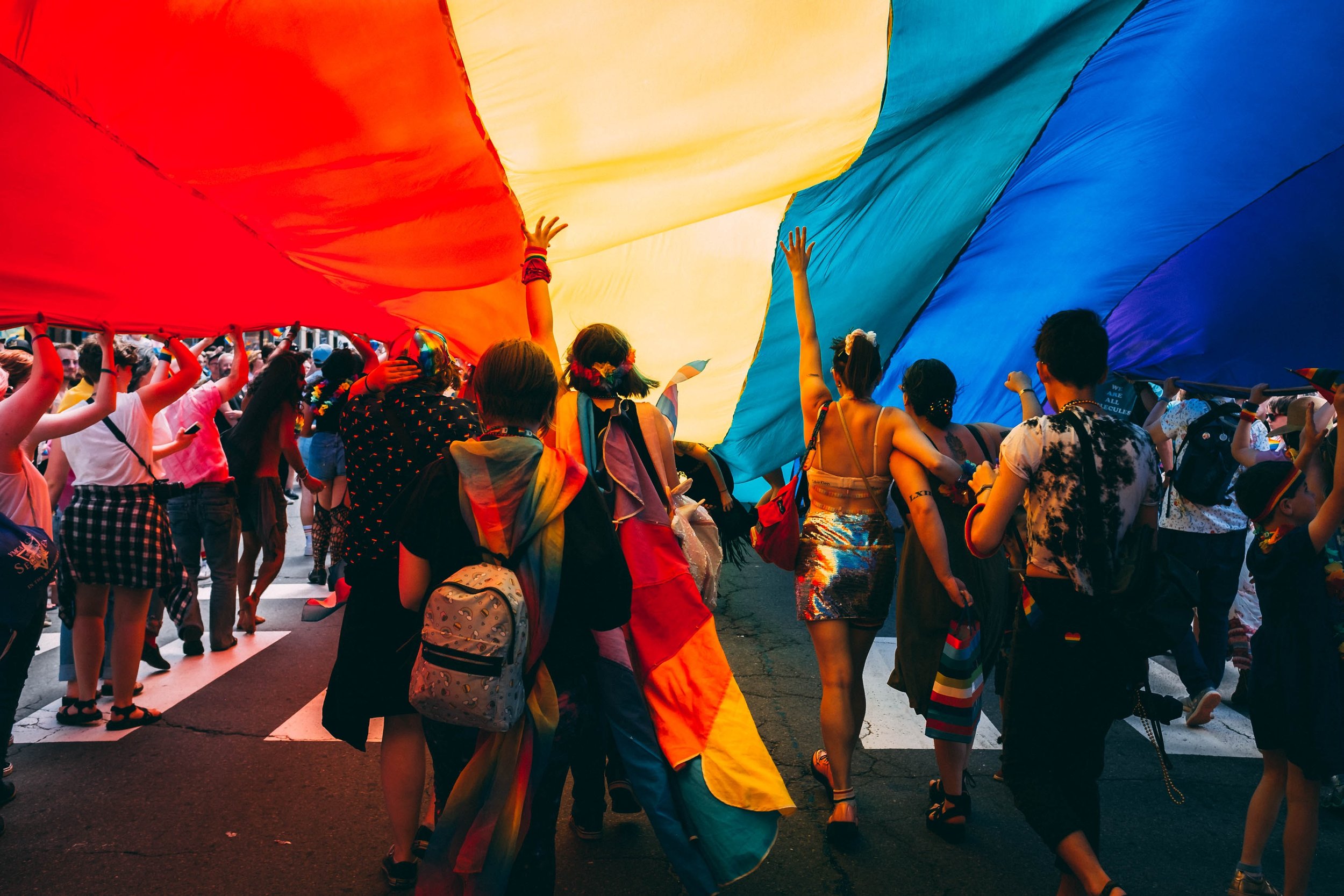
LGBTQ2S+
Community Counselling
Many individuals who identify with the LGBTQ2S+ community are often facing prejudice and discrimination. Many of these individuals face ostracization from their family, friends, teams, workplaces, and schools that severely impact their mental health. Although we see more and more acceptance and equality through advancements in conversations politically and through social mainstream media, by no means does this mean people within this community feel completely accepted and safe.
Internalized homophobia and/or internalized gender phobia occurs when people hear over and over again that who they are is wrong or bad in some way. People within this community have higher risks of depression, anxiety, suicide and abuse of alcohol and drugs in order to cope with the suffering they are experiencing on a daily basis.
Metanoia Mental Health offers face-to-face or online counselling for LGBTQ2S+ community in Alberta, Canada.
What is LGBTQ2S+?
The acronym LGBTQ2S+ is used to refer to people who identify as lesbian, gay, bisexual, transgender, queer or questioning, two-spirit, and anyone else who falls under the umbrella of non-heterosexual and non-cisgender identities.
This term is becoming increasingly preferred to the older acronym LGBT because it more accurately represents the diversity of individuals within this community. It also acknowledges Indigenous cultures that have long recognized gender and sexual diversity through the inclusion of "two-spirit" (or sometimes "Two Spirit" or "2Spirit").
While there may be overlap in individual's personal understanding of these terms, it is important to avoid conflating sexuality and gender identity - for example, a person can be both transgender and heterosexual. Understanding and using LGBTQ2S+ helps create a more inclusive and respectful environment for everyone.
Ultimately, it is up to the individual to determine if a counsellor feels safe and is informed and competent in LGBTQ2S+ matters. At Metanoia Mental Health, we strive to create an inclusive environment through continued professional development to build upon competency in serving this population.
What To Expect in LGBTQ2S+
Community Counselling
Provide a trauma informed safe space to process trauma related to one's own identity and journey
Work towards accepting one’s own sexual and/or gender identity
Work through feelings of possible shame associated with social attitudes and prejudice and discrimination
Resource and build a community with safe people who love, support, and accept you
Navigate the fears of fully expressing your authentic self and provide emotional support in regards to the changes that may occur from this
Help parents process changes associated with learning their child is part of the LGBTQ2S+ community and provide supportive information and resources
How can counselling support members of the LGBTQ2S+ community?
It's important to remember that there is no right way to be a human – the beauty of humanity lies in our unique differences and complexities.
What’s internalized homophobia?
Internalized homophobia refers to the negative attitudes and beliefs that LGBTQ2S+ individuals hold about their own sexual orientation or gender identity. This can manifest in various ways, from self-hatred and denial of one's identity to conformity with society's heteronormative standards.
Not only does internalized homophobia have detrimental effects on an individual's mental health, but it can also contribute to higher rates of substance abuse and sexually risky behaviours. It is important for members of the LGBTQ2S+ community to challenge these internal biases and embrace their true selves in order to lead fulfilling, authentic lives. In addition, education and support from allies can help to build healthier perspectives within the community as a whole.
Ultimately, eradicating internalized homophobia requires both personal growth and social change.
How Does My Orientation Affect Me?
Our sexual orientation can have a significant impact on our experiences and perspectives. It affects the relationships we form, the communities we belong to, and even the way we see ourselves.
Being aware of our orientation can help us better understand our desires and needs, as well as how we fit into society. It may also lead to feelings of pride or acceptance, or it may bring challenges due to societal stigma and discrimination.
Regardless of whether one's orientation is considered "mainstream" or not, it is important to recognize and value each individual's unique orientation. Ultimately, recognizing and affirming our own orientation can lead to a deeper sense of self-acceptance and fulfillment in all aspects of life.
What’s internalized gender phobia?
The idea of gender norms and expectations can be pervasive in our society, oftentimes leading to the internalization of phobia towards those who do not conform to traditional gender roles. This can manifest itself in the form of scorn towards individuals who display what is deemed as "non-conforming" behaviour, such as men showing emotion or women being assertive. However, it is important to recognize that gender is a spectrum and should not dictate how individuals behave or express themselves.
It is also vital to challenge negative attitudes towards certain aspects of gender expression and understand that every person has a right to their own identity and autonomy. Only by tearing down these rigid notions of gender can we create a more inclusive, accepting society.
Find a therapist
-

Brianne Erichsen
BSW, MC, RCSW
-

Deborah Flowers
CCC, M.C., B.ED

